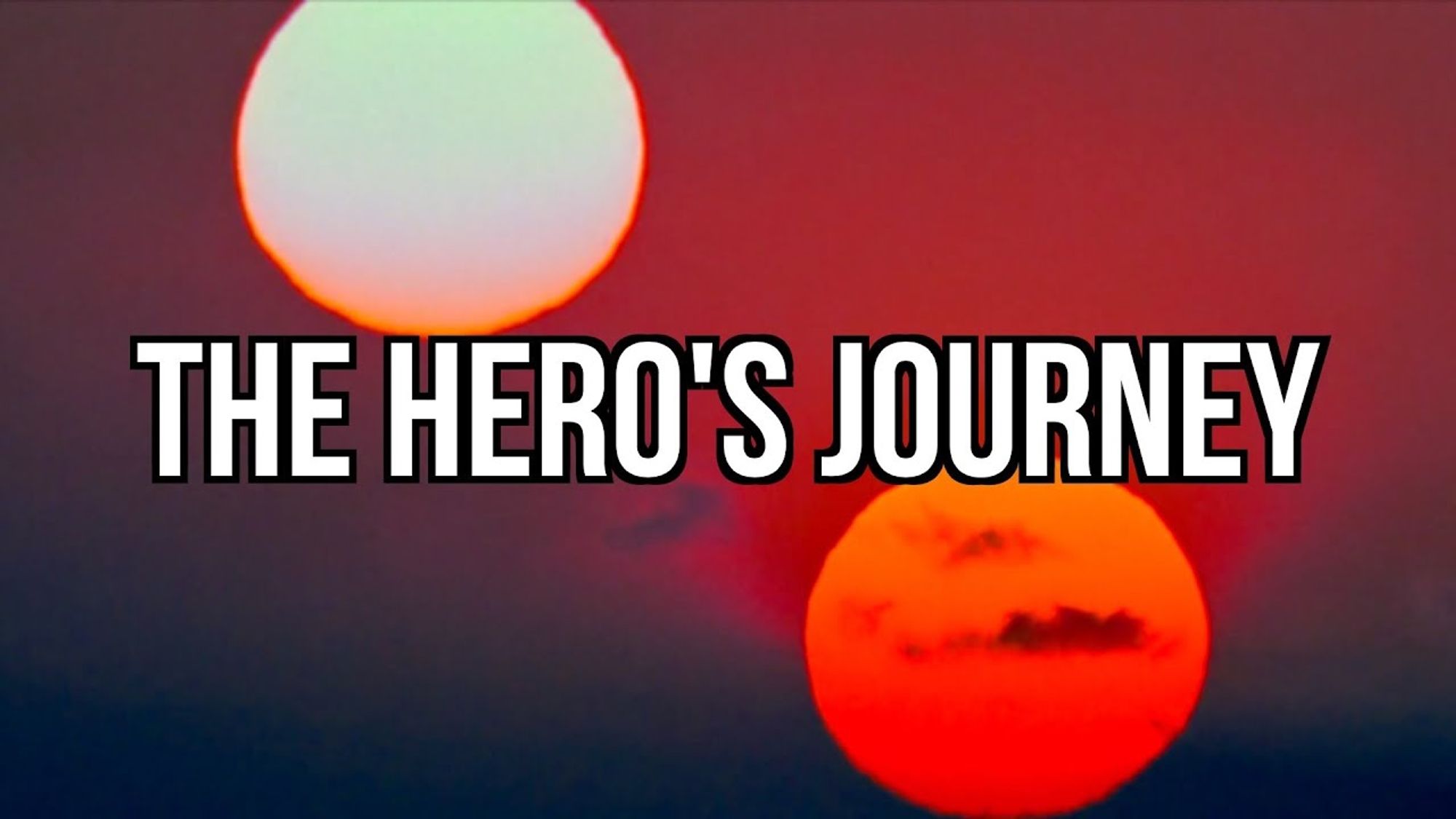We know that good stories appeal to people, attract attention and stimulate interest. All of the world's culture is built on them. If you look at them carefully, you will find that all stories are built on a few fundamental principles.
Story is the ultimate tool for emotional persuasion. The story must be:
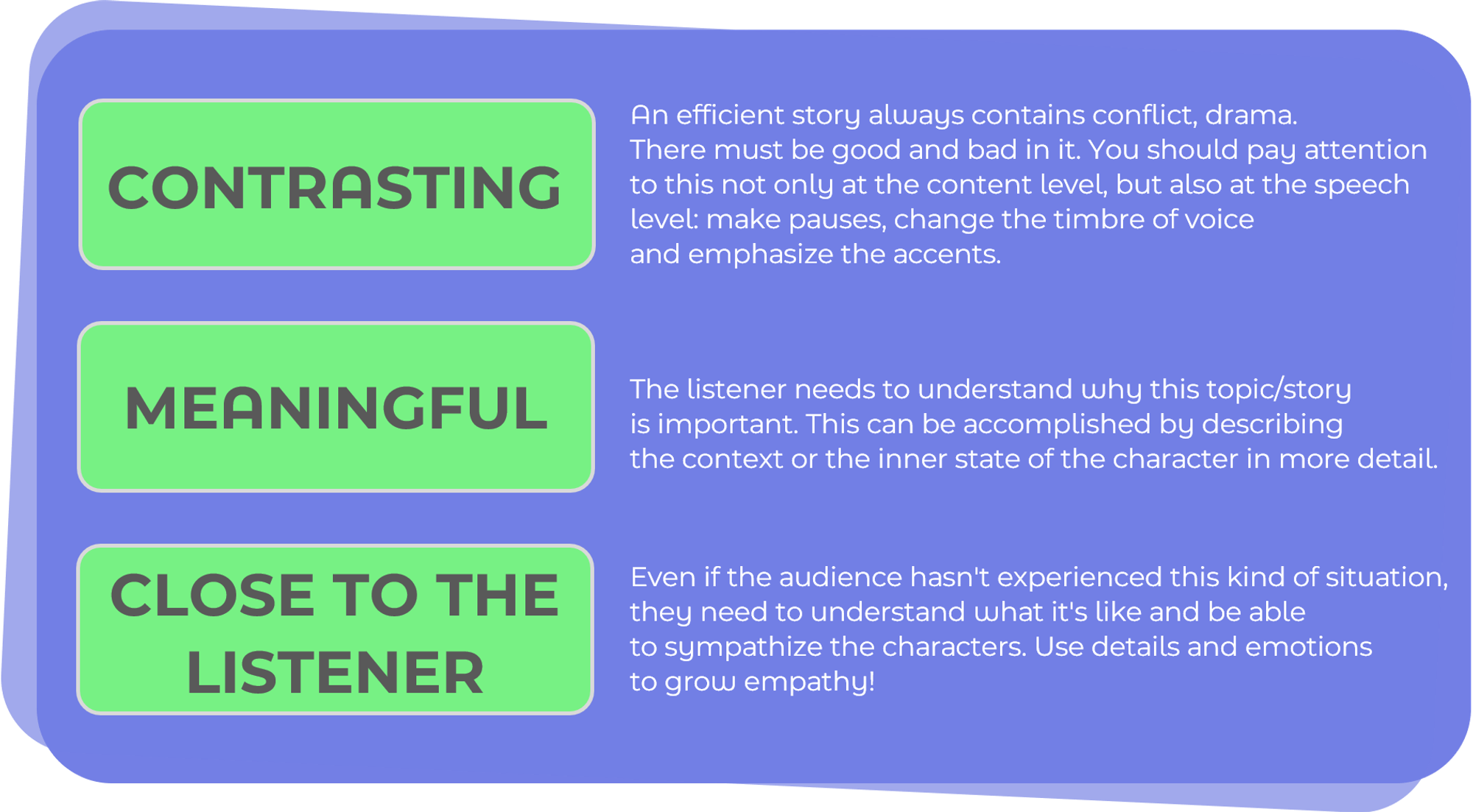
For the speaker, using these principles can provide a number of unique benefits: holding the audience's attention for a long time, reinforcing key points and ideas (listeners will remember better) and creating a special, valuable experience.
What's more, these techniques have a positive impact on developing a speaker's personal brand — helping to elicit trust and empathy, and "build back" from other speakers on the same topic.
If you need to explain complicated things simply or if you feel that your content is not unique at all (there are hundreds of articles and speeches about this) and you don't understand how to create value — pay special attention to storytelling tools.
To see if your story is good, check it against four criteria:
The principle of contrast, or the most common plots according to Kurt Vonnegut
"Person in a difficult situation"
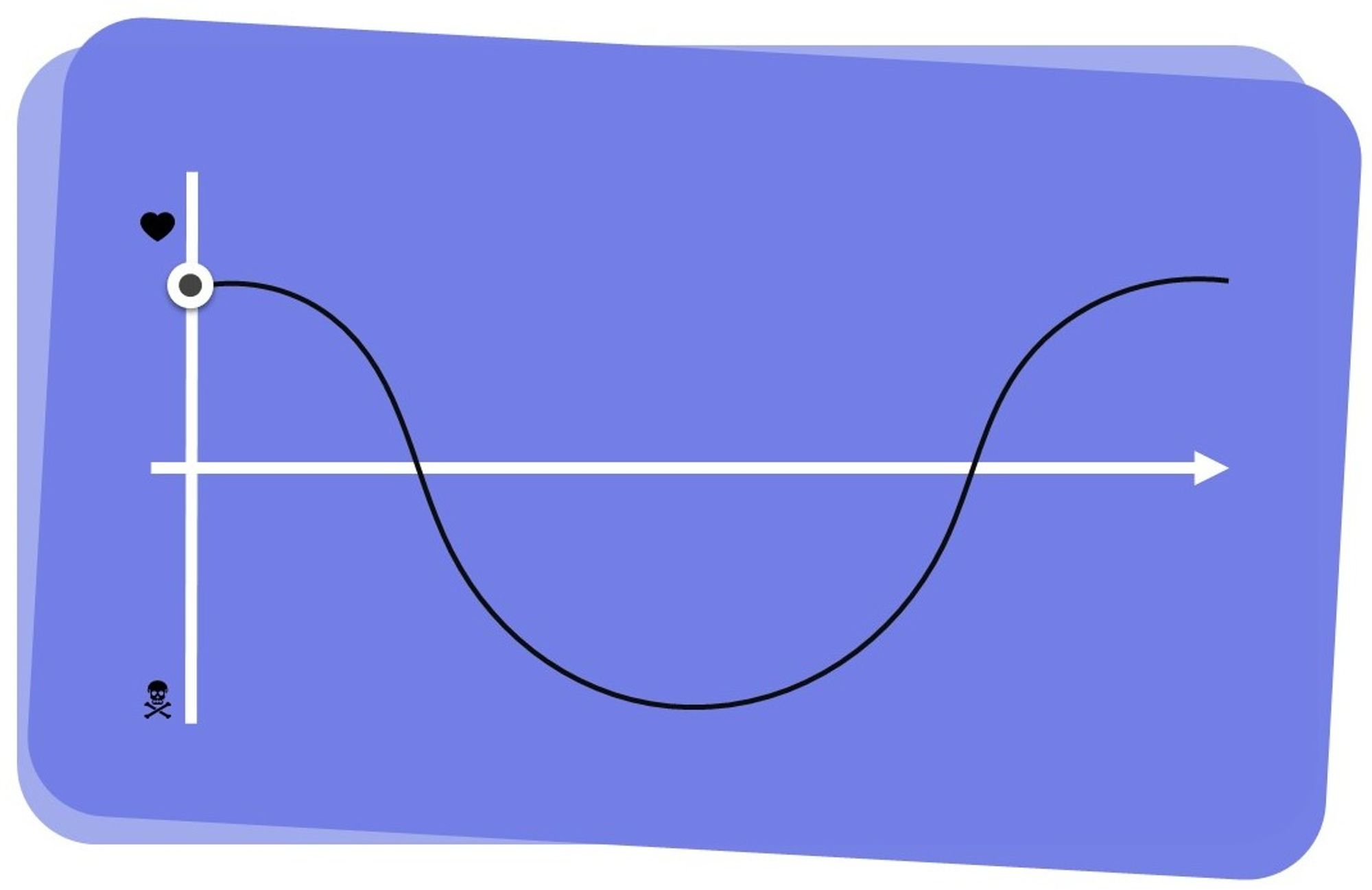
The story begins from a positive context, where everything is fine and nothing foretells trouble, then unexpected circumstances appear that make the situation very difficult (financial crisis, a difficult competitor, new search algorithms, supply disruptions, unplanned inspections, the dog ate the homework notebook, etc.).
This is followed by details that immerse listeners in an atmosphere of insurmountable difficulties and form empathy and empathy for the main character.
Then, thanks to insights, the help of friends and partners, his or her own resourcefulness and wit, or by chance coincidence, the protagonist is transformed.
The hero transforms himself, gathers his strength and solves all the issues, moving back into a positive context in anticipation of new challenges and adventures.
"Boy met girl"
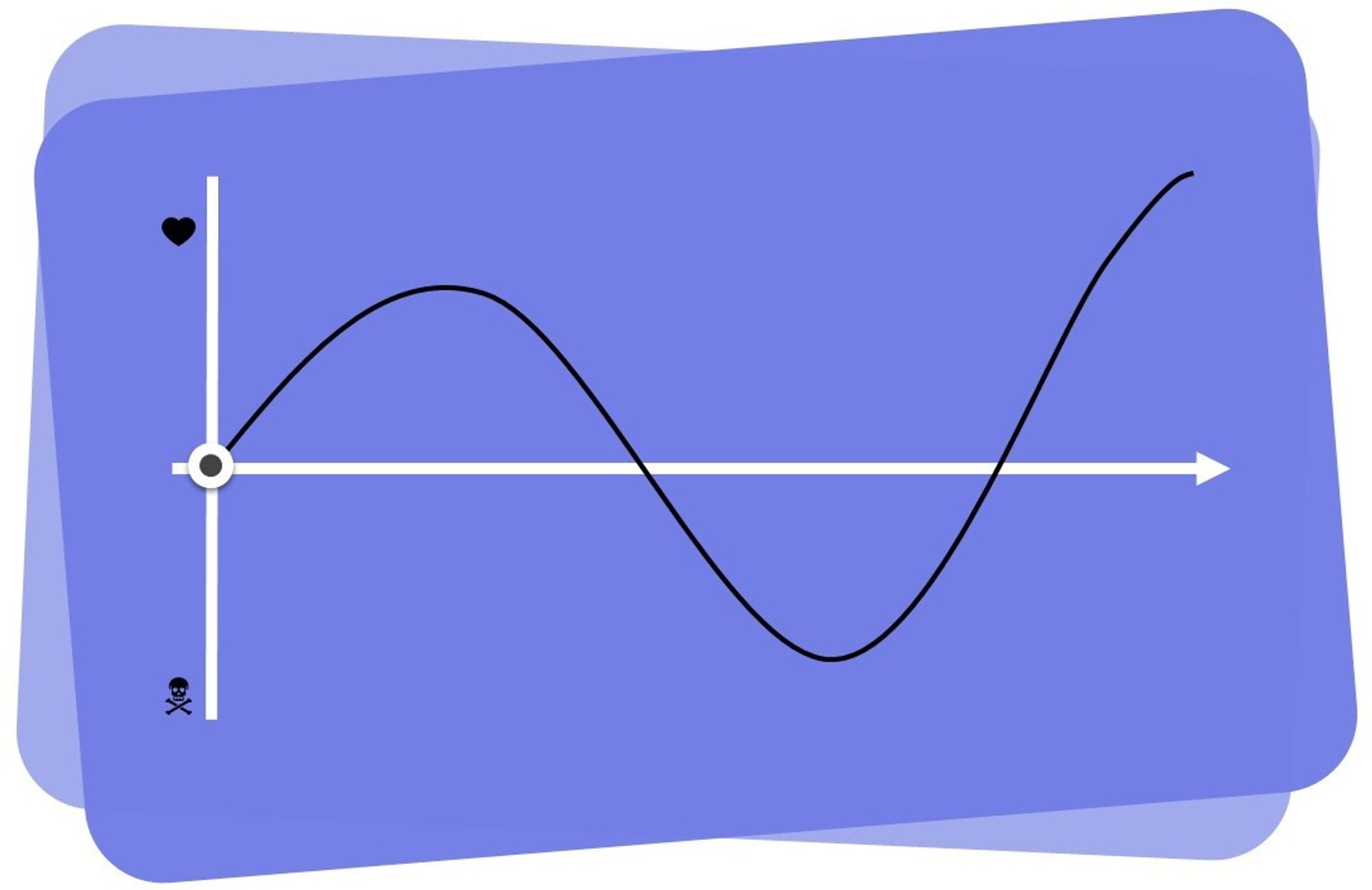
This story implies a narrative model in which there is no initially explicit context-it all begins from the usual routine circumstances. Then a stroke of luck suddenly appears, which leads to astonishing consequences: sales grow, employees are motivated, clients don't give up, the hero gets younger, and the grass grows greener.
However, the effect is short-lived and soon leads to the opposite effect: nakrasalali so much that it is impossible to ship goods and provide services, employees have realized that they do not want to "work for the uncle", customers demand more and more...
Then a block of experience, reflection, suffering and frustration. After which all comes back to normal and even better — thanks to the courage and resourcefulness of the protagonist. Or chance. That's as luck would have it.
"The Cinderella story"
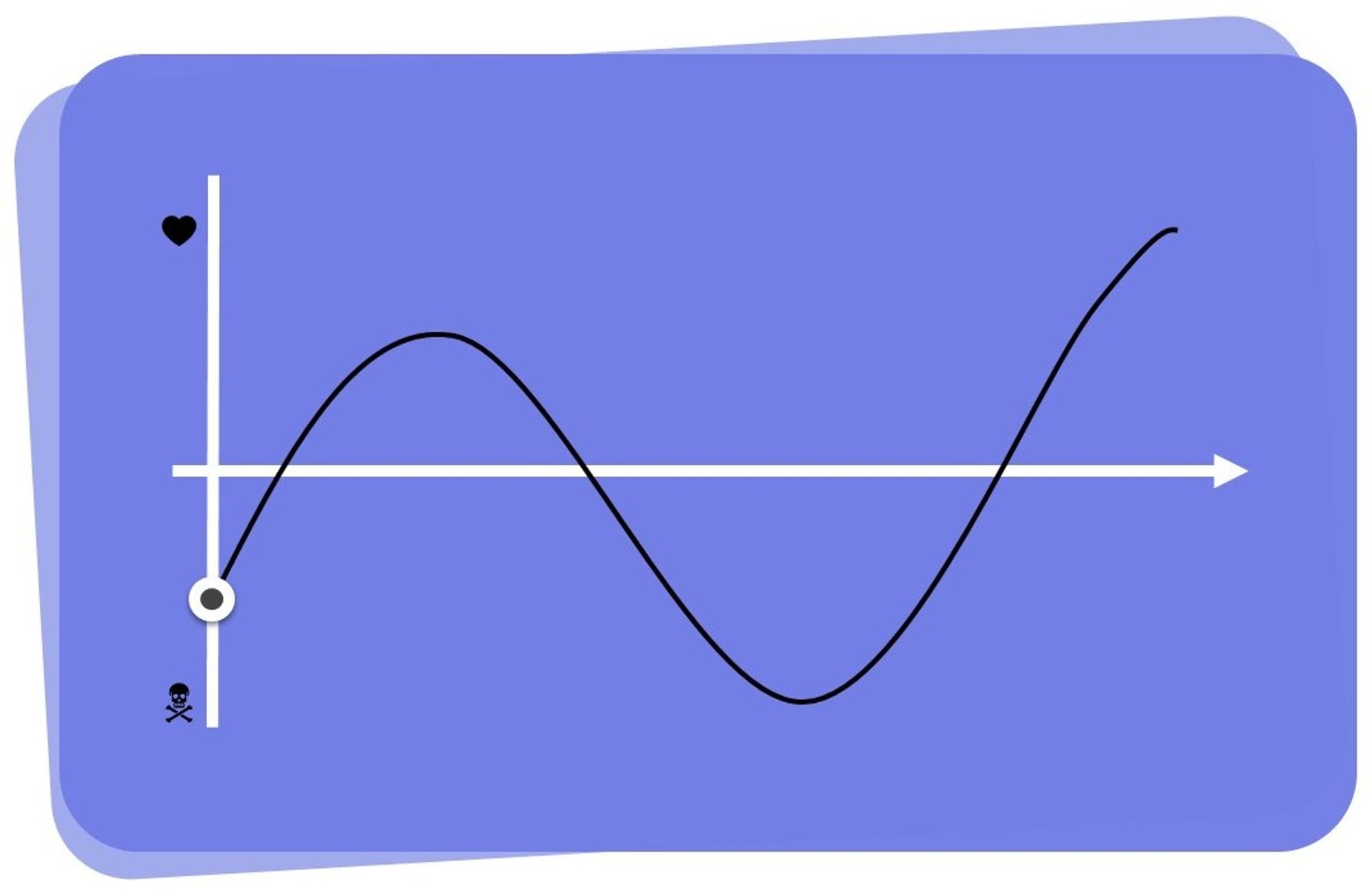
The classic "Cinderella story" tells us that our way was difficult and thorny from the very beginning - no help or support, all by ourselves, with minimal budgets, sawing the application literally on the knee or assembling computer boards in my father's garage.
Then our product turned out to be needed by someone and this fairy helped us to find our first customers and promote ourselves in the market.
But the effect was not long — midnight came: we ran out of customers, we have not found other customers, the product is gathering dust in the warehouse, customers do not feel the need for our product, the market has not formed - we do not know what to do next, we are sad, quarreling within the team, looking at alcohol and tranquillizers.
However, customers have begun to dawn on us that our product is having the effect they want - metrics are going up, consumers are bringing in money — customers are recommending us to each other — they are ordering product from us again. Profit.
The longer your speech, the more emotional swings there must be in your speech
In any story, regardless of the plot, the contrast at the dramatic moment is important — this is the part that creates space for the audience to empathize with the hero. The contrast is created, on the one hand, by the contradiction of the content "was — became", "expectation — reality", "plan — fact", etc.
On the other hand, due to the verbal accompaniment of this content — through the use of pauses. Short and perhaps chopped phrases. Usage. Short. Phrases. And also through the pace of the narrative: usually when we talk about positive and exciting things — we talk quickly, dynamically, with active gesticulation and often with a smile on our face.
When it comes to emotionally difficult things, the dynamic is noticeably slower. We talk slower. Calmer. No gestures. Without smiling. Thinking. Remembering. Moving forward.
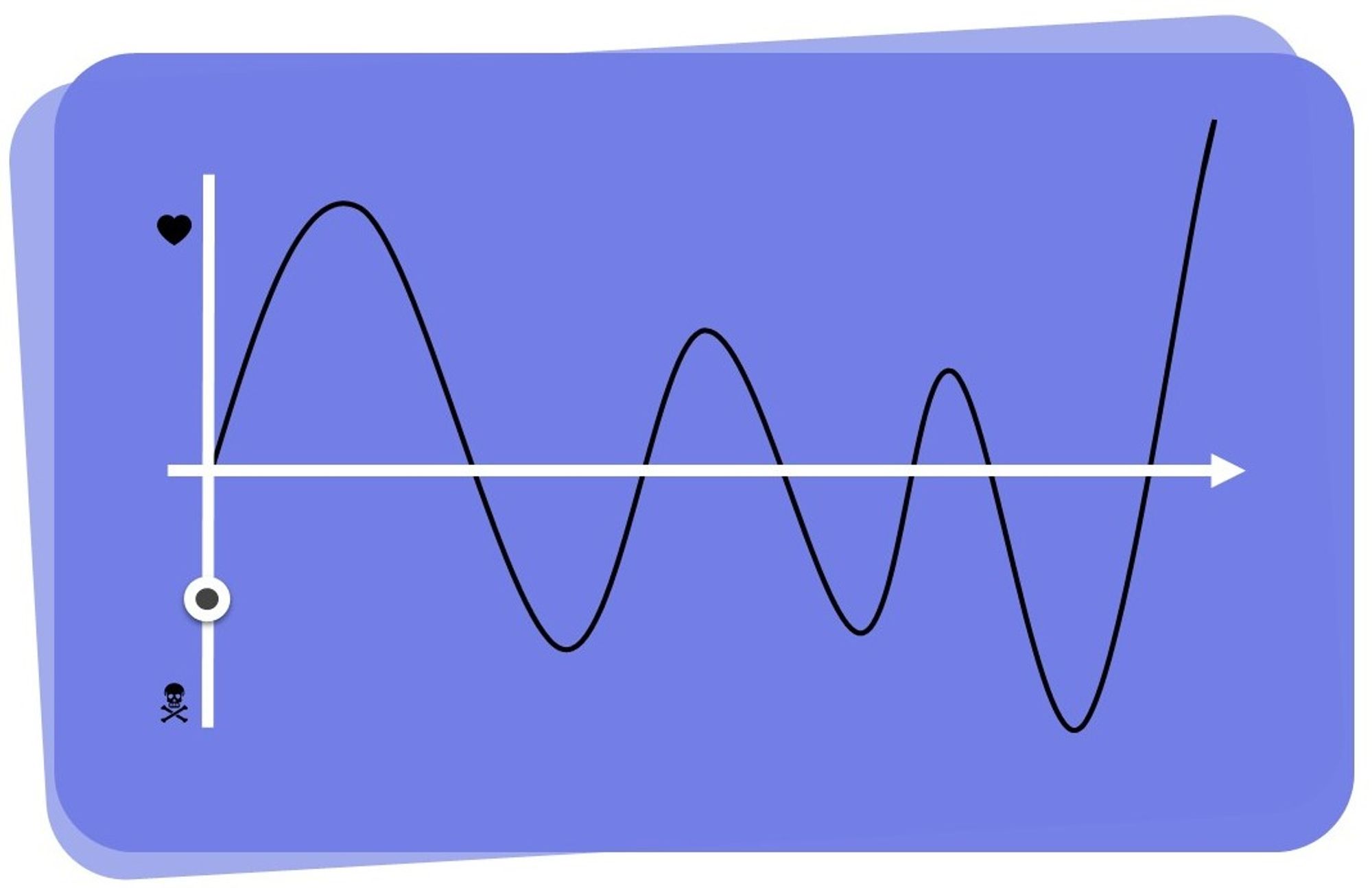
We've prepared a template for you to help you work through your story:
Three Key Ways to Use Storytelling Tools in Speech
Describe the process narratively
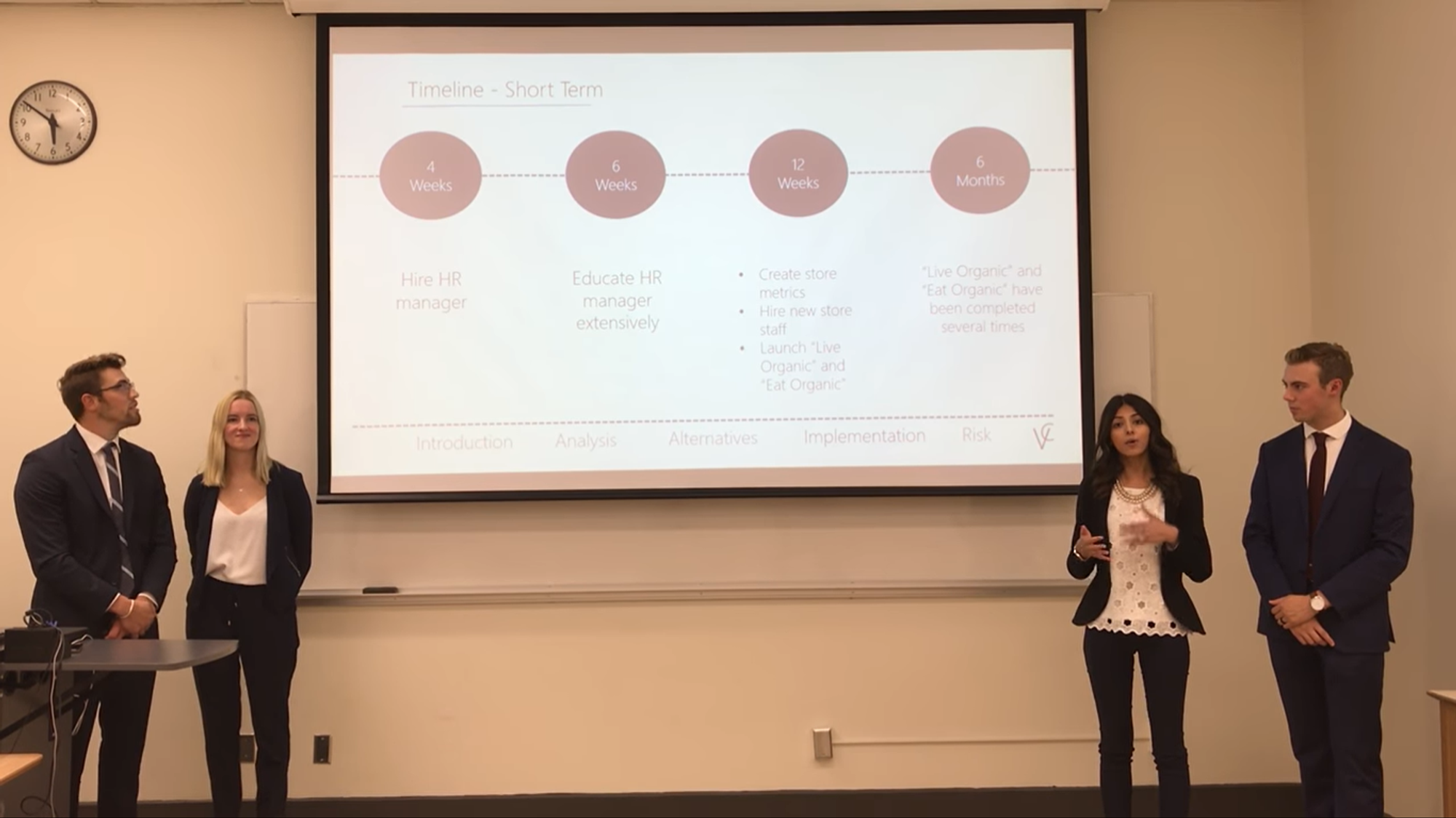
Describe the process, the pipelining is the trigger for the storytelling. Tell it sequentially, element by element. Give an example right away, if possible.
Focus on the bottlenecks where problems most often arise.
Interpret! simple or complex? Optimal or ineffective?
Tell a separate story/case

To do this, you have to add details and emotions, highlight the "drama zone. and be sure to draw a conclusion from the case.
Start by describing the situation in which the problem/opportunity that the case is about arose.
Any case can be developed into a story.
Use a cross-cutting metaphor
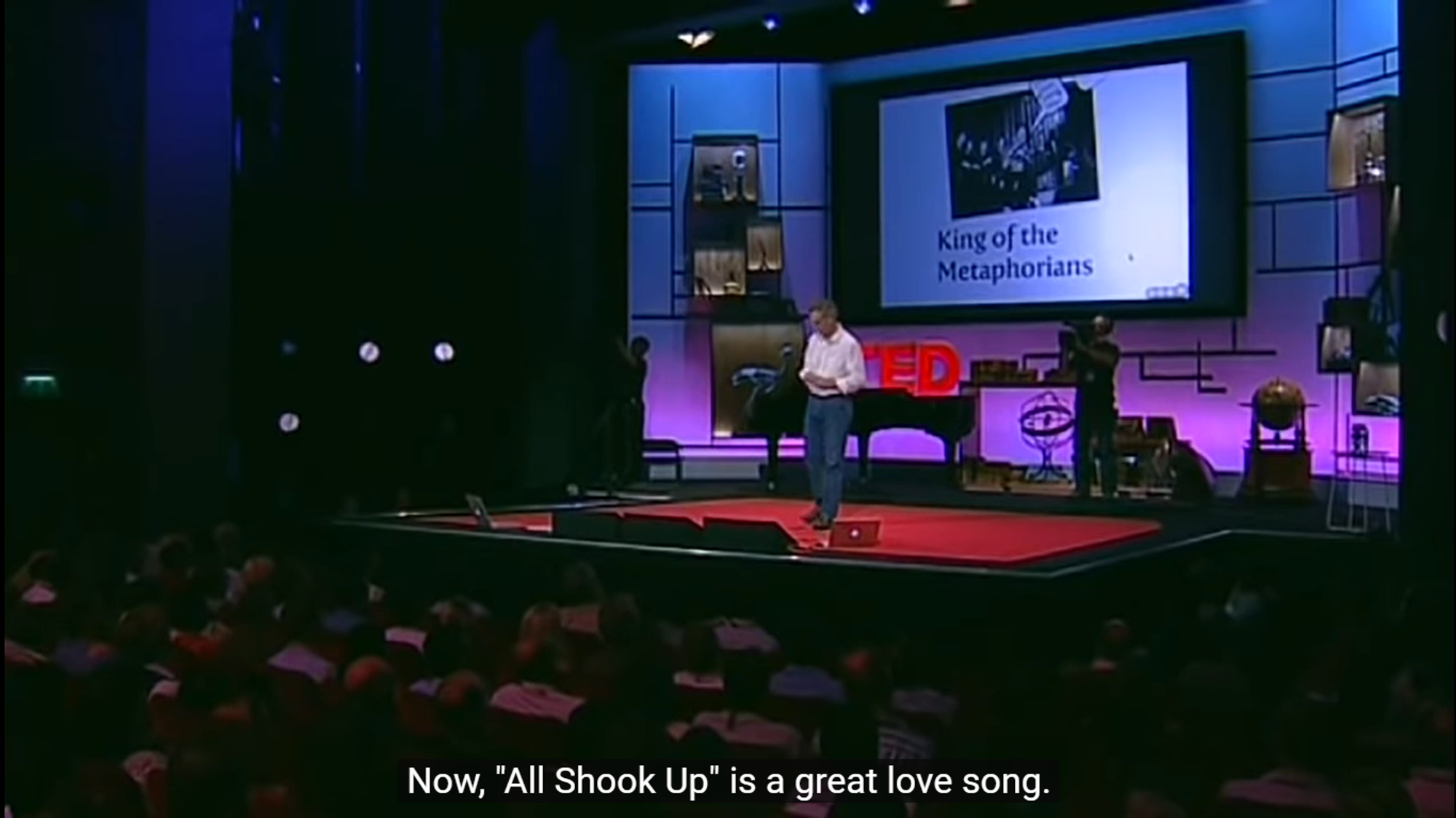
"Pull" the visual and verbal metaphor through the whole speech. For example, compare the task of calling native code from Java to a journey from the cozy Shire to Mordor, and use the lore of Lord of the Rings throughout the report. Or explain how metaphors work through the music of Elvis Presley.
Universal Story Structure
There are many approaches to creating audience-engaging stories, but not many of them can help you create one (sometimes even from scratch).
Monomyth is a concept of story construction identified by Joseph Campbell (and earlier by Vladimir Propp) through the study of myths, stories, and fairy tales from different cultures. Monomyth helped to understand what common elements are present in various myths and stories, and how they are reflected in ordinary life.
The monomyth is based on 10 stages that reveal the course of history in sequence
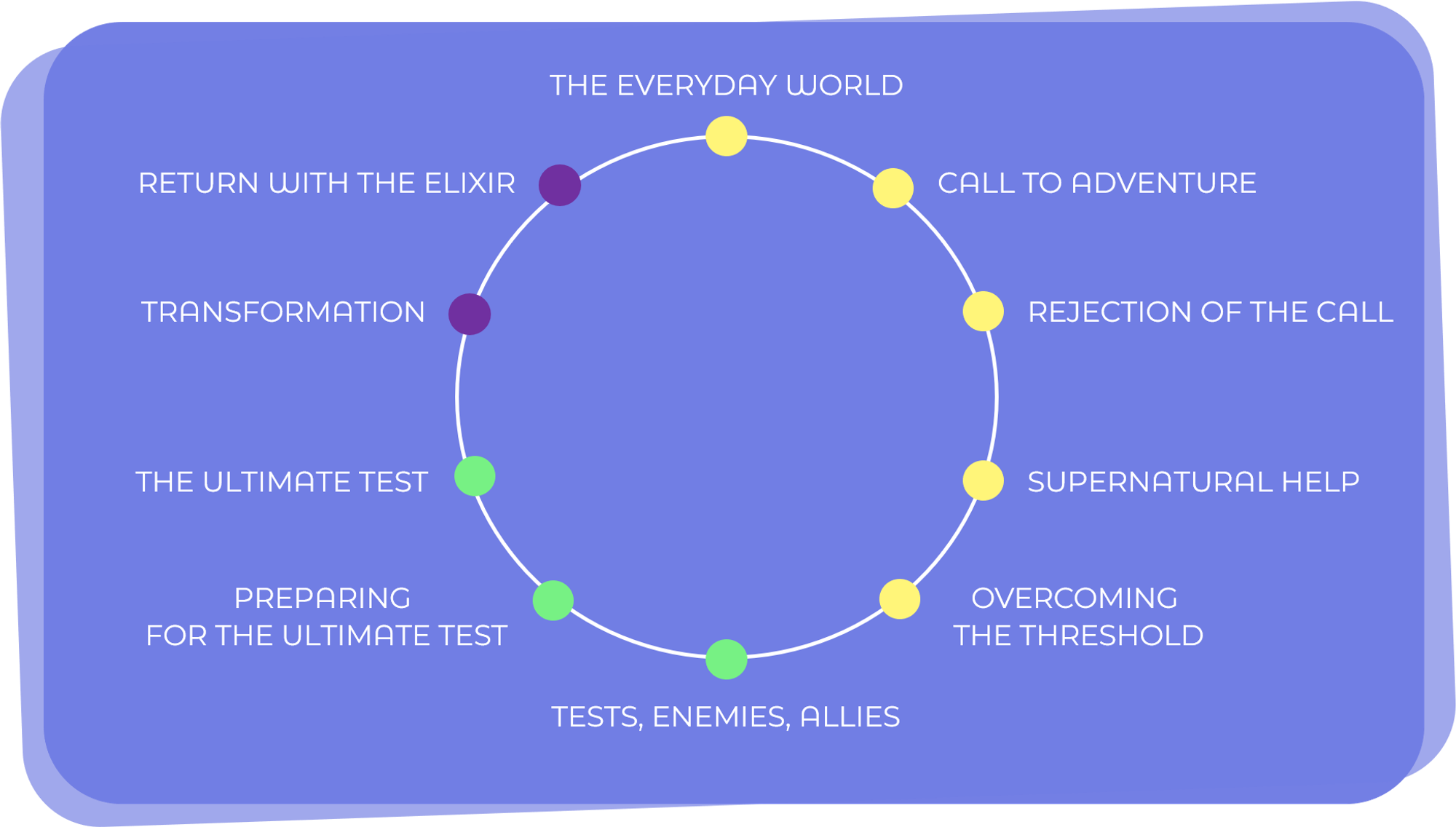
Let's take a closer look at each stage!
The Everyday World
The starting point of any story, showing the protagonist in comfortable or familiar conditions. In most cases, the everyday world shows the protagonist's daily routine: family, work, relationships with others.
This stage fulfills 2 crucial tasks:
- forms empathy, as it helps the listener to understand the character of the main character, his problems and experiences;
- creates contrast, as the listener will later be able to compare the character's starting point and the development of the plot.
At the very beginning, Harry Potter is presented to the audience as an ordinary unremarkable boy living in a foster family. The Dursleys treat Harry very badly, forcing him to live in a cubbyhole under the stairs, scolding him, and ignoring his existence whenever possible.


Call to Adventure
An unexpected turn in a character's life that provokes an internal conflict: to stay safe or to succumb to change.
The call of adventure can come in any form: an interesting proposal, a mysterious sign, an unusual message, the arrival of a new person, a setback, or even the hero's running out of patience.
This stage of the story introduces changes in the hero's life and triggers events that will lead to the development of the plot.
For Harry, this call was the letters from Hogwarts, destroyed by the Dursleys in huge numbers.
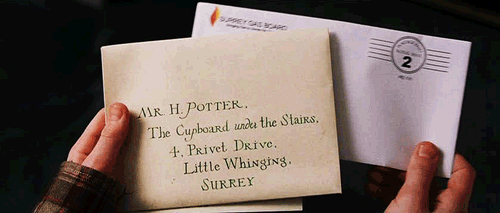

Rejection of the Call
The protagonist's resistance to new challenges. The protagonist may experience fear, doubt, feelings of unpreparedness, or simply not wanting change in his or her life.
This stage develops conflict and tension in the narrative by showing the audience how the protagonist is trying to overcome himself or herself and accept change.
— You're a wizard, Harry. — I'm a wizard? — Believe it. And I bet you're a very good one, if you practice a little! — No, I think you've made a mistake. I'm not a wizard. I just-- I can't be. I'm Harry, just Harry. Inner doubts prevent Harry from accepting the challenge and believing that he is a wizard, because he was brought up as an ordinary and unremarkable boy to whom nothing amazing can happen. And even in spite of his doubts, Harry goes after Hagrid.
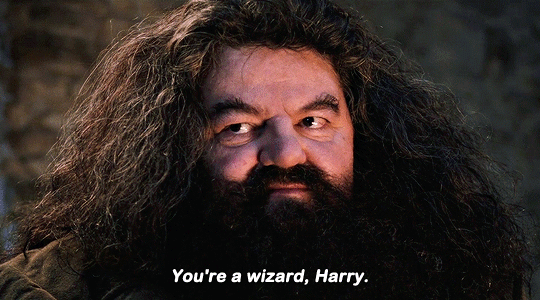
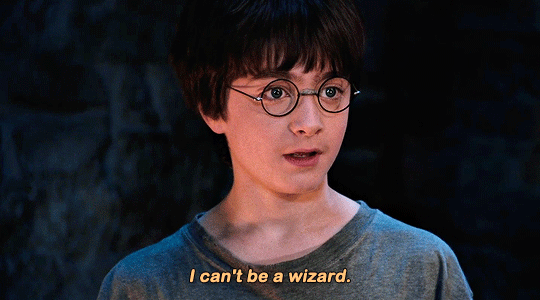
Supernatural Help
A person's (mentor's) advice, a situation, a sign, the acquisition of power or information that will help him overcome a threshold.
Supernatural help can be either a single event or a series of events in the protagonist's life.
In the story, this stage shows the audience the background motivation of the protagonist to overcome doubts and accept the challenge.
Harry had many helpers and situations that brought him closer to accepting the challenge: Hagrid picking him up, his first appearance in Goat Lane, his visit to Gringotts Bank, his encounter with Ollivander, his first use of his wand, and the emergence of information about his parents.

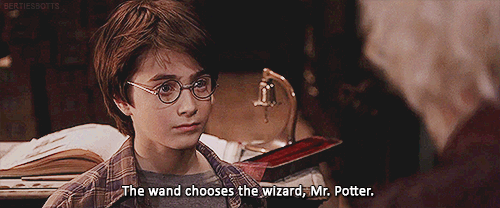
Overcoming the Threshold
The protagonist's consent to changes in his or her normal life.
Overcoming the threshold can be internal (moral readiness to change) or external (the protagonist's action to change his life). Overcoming a threshold can be complemented by a physical transition from one state to another (e.g., entering a new office).
This stage in the narrative shows the audience that the protagonist has left his ordinary world behind and is fully immersed in his adventure. Overcoming the threshold symbolizes his readiness and determination to take on the challenge.
Overcoming the threshold for Harry was the passage to Platform 9¾, symbolizing both the beginning of a new life and giving him no turning back.


Tests, Enemies, Allies
The part of the story in which a character adapts to a new world: encounters various tasks and challenges, meets new people, and makes friends and enemies.
The part of the story in which a character adapts to a new world: encounters various tasks and challenges, meets new people, and makes friends and enemies.
Tests can be anything: physical (e.g., catching a train), emotional (e.g., overcoming the fear of meeting new colleagues), intellectual (e.g., solving a work problem or passing a complicated report). And enemies and allies are those characters who either help or hinder the hero to cope with the ordeal.
This stage is necessary in the story to develop the character of the hero, to show his strength, courage and ability to overcome difficulties. Trials, enemies, and allies add tension and interest to the story and help the hero grow and develop.
For Harry Potter it is the meeting with Ron and Hermione, the first quarrel with Malfoy, the assignment to the faculty, meeting Severus Snape, Quidditch, the investigation of the Philosopher's Stone, and many more events showing Harry's life in a new world.
.gif?table=block&id=ad1b65bb-8235-4fad-a2c4-cd863421c1b3&cache=v2)
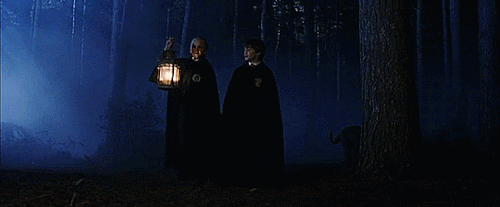
.gif?table=block&id=add3f81b-f552-49a9-a257-b6f572f4e636&cache=v2)
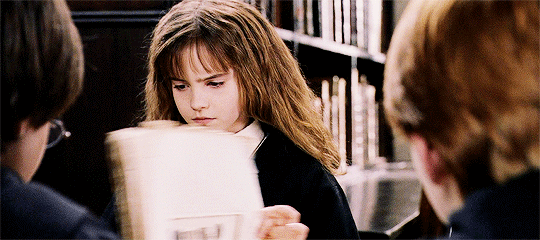
Preparing for the Ultimate Test
The main character goes through the trials that prepare him for the main trial.
Focus on the protagonist's preparation: training, gathering the necessary resources, developing skills, learning more about himself. It is important to show that the protagonist realizes what is ahead of him and that he must be prepared for everything that awaits him.
In the narrative, preparation creates the necessary tension, adds meaning and significance to the coming confrontation, and allows the hero to reach the peak of his development and potential.
Harry and his friends overcome a series of challenges: disarming Neville, getting past the sleeping Cannon, relaxing in the embrace of the devil's snares (well, not all of them :), catching the key, and playing a game of chess. Next, however, for the main test, Harry will go alone.
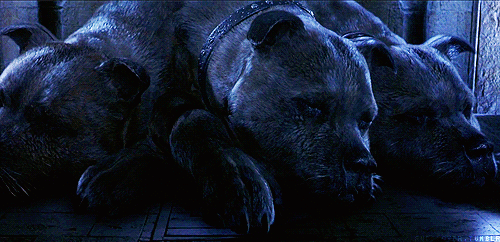


_(1).gif?table=block&id=020576d3-d214-49e5-9c5d-046524758145&cache=v2)
The Ultimate Test
The point at the climax of the story where the hero faces a major challenge.
It may be a death struggle, solving a difficult problem, or overcoming their inner barriers. The hero must use all of his skills, wisdom, and spiritual strength to overcome the main trial.
The hallmark of the main trial is the high stakes and importance of the event. The main trial represents the culmination of the entire adventure and determines the hero's success or failure. It can be the moment of truth, where the hero shows his true strength and abilities, or the moment of failure, where the hero fails and loses.
The ultimate test is the emotional resolution of the entire story where the hero concludes his adventure.
For Harry Potter, the ultimate test was his encounter with Professor Quirrell (Voldemort). Harry refused any of Voldemort's offers and overcame the temptation to get his parents back and was able to find a way to defeat the professor and keep the Philosopher's Stone.
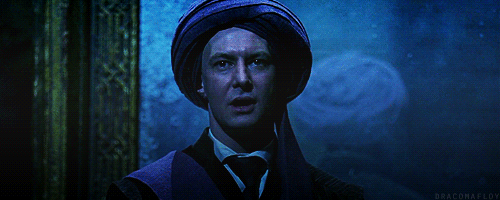
_(1).gif?table=block&id=1e320e12-88d7-4569-aeab-3f33956e7017&cache=v2)
Transformation
The physical, emotional, or spiritual transformation of a protagonist, demonstrating the difference between the protagonist at the beginning and end of the story.
The hero may change in appearance, exhibit new qualities and skills, learn a secret, change his or her beliefs, values, or realize his or her destiny.
At this point, the audience sees the result of the hero's growth and development as a result of his adventures and trials.
— Good afternoon, Harry! Oh, gifts from the fans! — Fans? — What happened in the dungeon between you and Quirrell is a big secret. Well, of course, the whole school knows about it. In the Hospital Wing, Harry finds himself in a whole new capacity. He is glad that the Philosopher's Stone is no longer a threat to the magical world, his friends are alive and well, and everything that happened is important to the school (so much so that Gryffindor won the School Cup). But the most important part has to do with the conversation about his mother: — Harry, do you know why Professor Quirrell couldn't stand it when you touched him? The reason is your mother. She sacrificed herself for you, and that kind of thing leaves a mark. It's a mark you can't see, but it lives deep inside you. — What is it? — Love, Harry. Love.
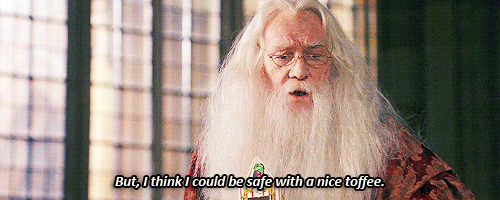

Return with the Elixir
The return of the hero to the starting point, but in a new capacity.
"Elixir" can be valuable knowledge, wisdom or experience gained during his adventures, transformation of the hero, by specific objects (for example, a diploma).
The hero can use the "elixir" to change his life and benefit his community.
This stage is necessary to show the audience how the hero's adventure has affected him and his perception of the ordinary world.
Harry returns to the Dursleys' house, taking with him an album with pictures of his parents and friends, and realizing that his home is Hogwarts. — It's so weird that we're going home... — I'm not going home. Not really.
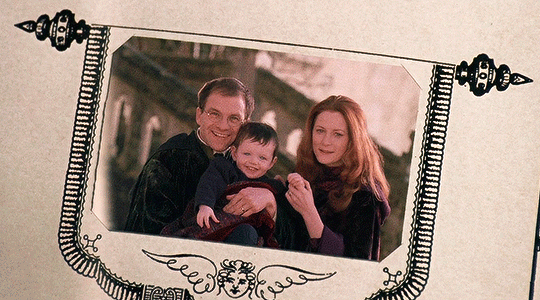
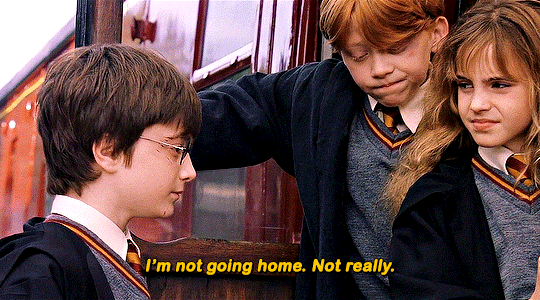
Another example (detailed breakdown of Star Wars and the monomyth):
It may seem that monomyth is suitable only for magic stories
But it is very often used in public speaking and advertising. Take a look at an Amazon commercial and see if you can find all the elements of a monomyth!

And you can see the answer here :)
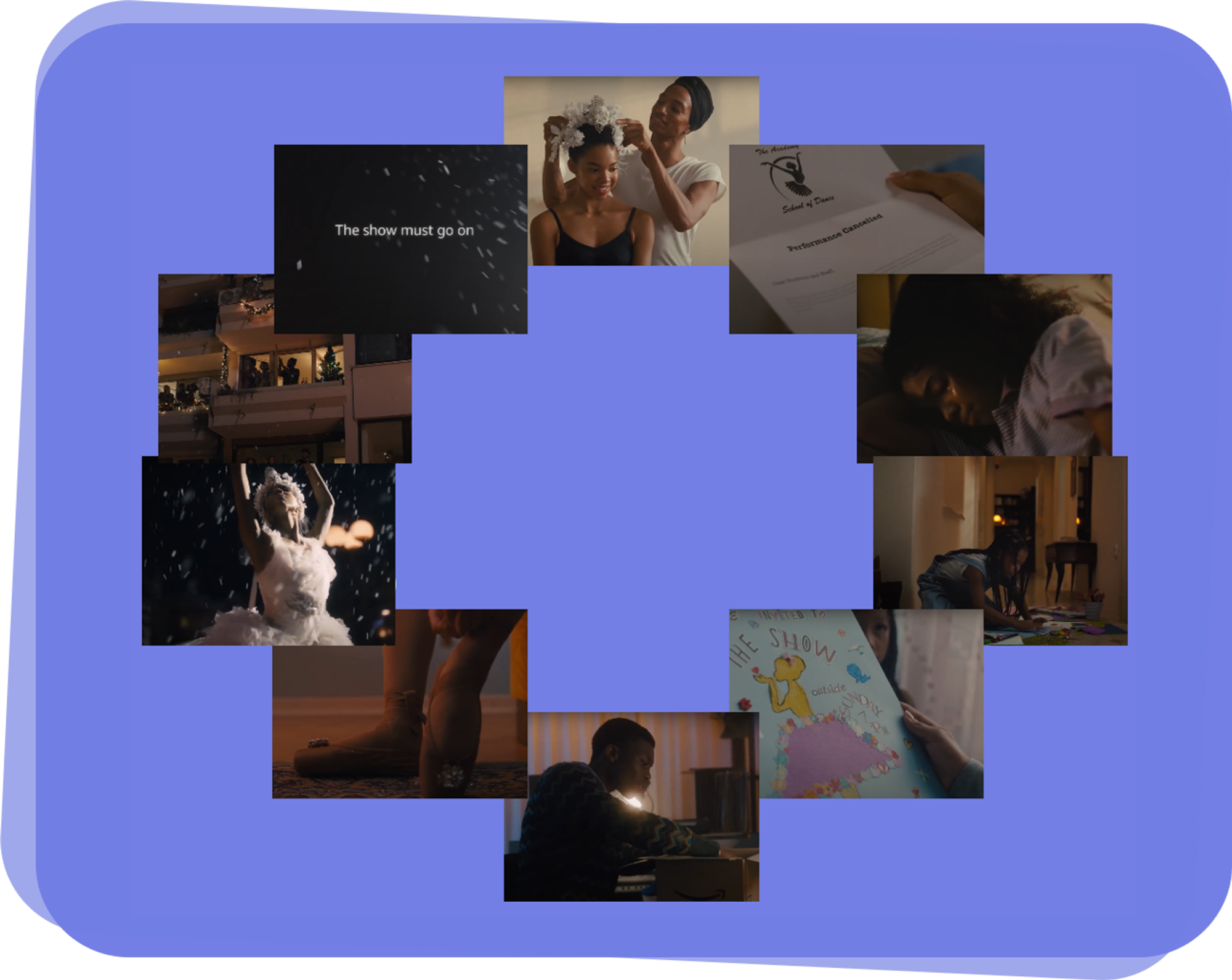
An example of a story that comes closest to an event familiar to everyone (or almost everyone)
Anya is a typical employee of a corporation. Her working days are filled with an endless stream of monotonous tasks: organizing meetings, writing reports, processing paperwork, meeting with the same people. It always seemed to Ana that her talents and potential would not be realized in such a limited and indifferent environment. Therefore, spending most of her time at her desk, she dreams of more exciting and intellectual work.
After 3 years, Anya's friend got tired of watching Anya wasting her potential and, without asking her permission, recommended her as a competent specialist to a small startup company engaged in the development of innovative technologies. And Anya received an invitation for an interview.
Anya was very frightened by this invitation: on the one hand - a feeling of anxiety for her future, stability, because working in a startup is a huge risk, but on the other hand she realized that there she would be able to do the work she really liked. Thinking that she would not lose anything, Anya decided to go for an interview.
The interview went great, Anya was offered an offer. But Anya still had her doubts. When Anya was about to leave, an employee of the company, who introduced himself as Mark, came up to her and asked about the results of the interview. Anya confided in Mark, told him about how everything went, about all her fears and worries. And then Mark said: "Anya, look around you - great changes always start small. In this startup, I have the opportunity to bring my ideas to life and create something truly meaningful. Believe in yourself and don't be afraid to take risks."
On the same day, Anya submitted her resignation and accepted the offer.
Adapting to work in a startup was very difficult: constant technical difficulties, lack of knowledge, fear of making a mistake. But Mark was always there to help Anya as soon as difficulties arose.
One day, the startup was approached by a company with a complex task - to create an innovative artificial intelligence system for a smart home. It was an opportunity for the startup to develop a revolutionary product and finally make a name for itself. Anya was very scared: a new startup, few colleagues, so the level of personal responsibility is very high. The team spent day and night doing in-depth research, tests, planning the results. Constant technical difficulties, deadlines, competition - put a lot of pressure on the whole team.
Realizing that everything was not going well and worrying about the result, Anya decided to take responsibility and analyzed the available results. Having found many mistakes, Anya shared this with the team and offered herself as a team coordinator.
Reorganizing the team two months before the launch is a huge risk. But the whole team worked hard, trusting Anya. And finally, X day came when everything worked out.
The team successfully completed the project. This day became the biggest celebration in the company, when the team realized that now they are on a completely different level. Everyone was grateful to Anja for her faith in the team and saving the project.
Passing by the old office, Anya remembered herself a year ago - burned out, tired, with no prospects. And she realized that everything was not in vain. Now she was sure that she would be able to cope with everything.
Short lecture by Kurt Vonnegut himself on the 'simple shapes of stories’:

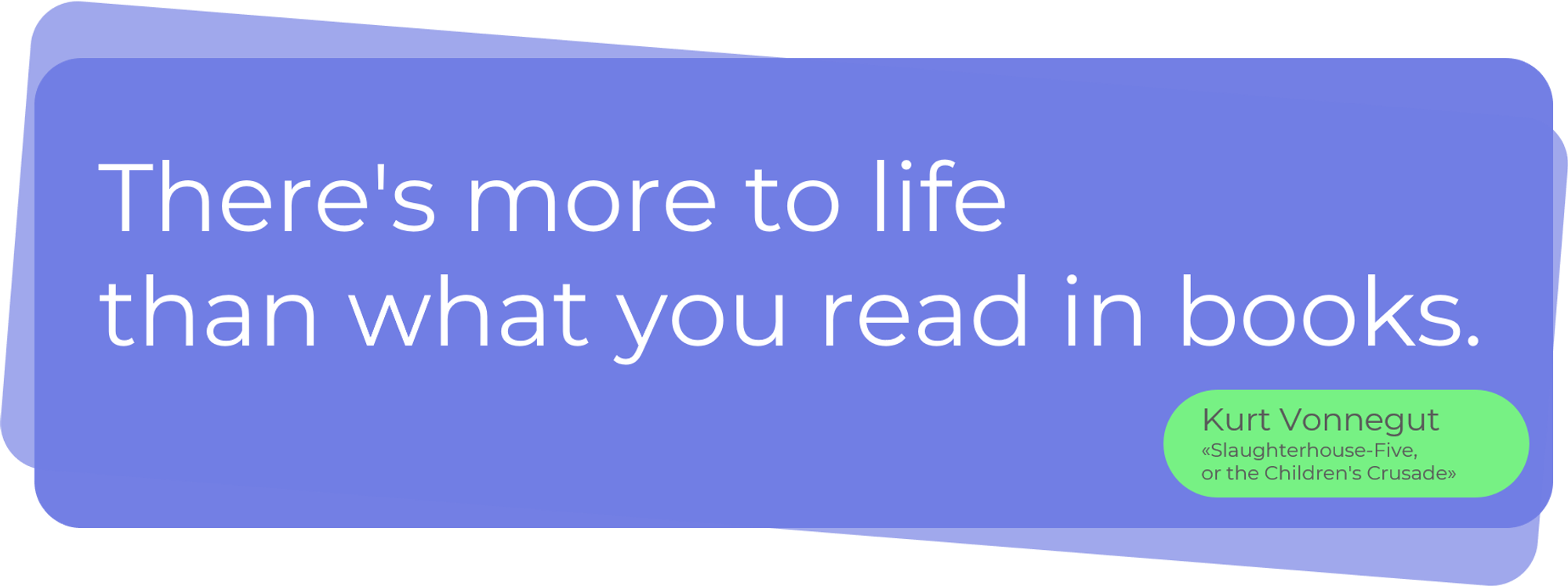
📚 The fundamental book of Joseph Campbell we rely on in the article and advise you to read. Click on the hyperlink to open in pdf and enjoy!

